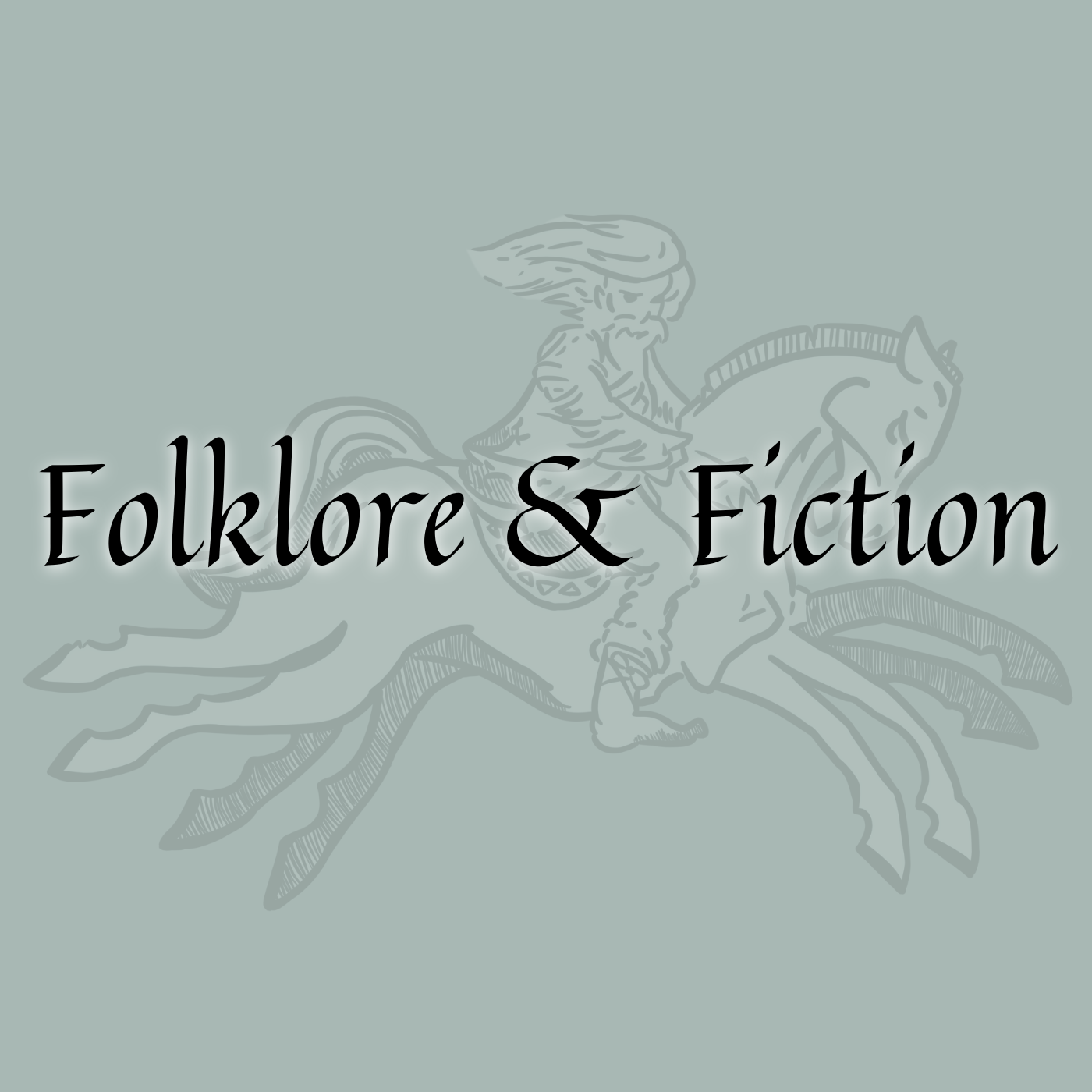Episodes
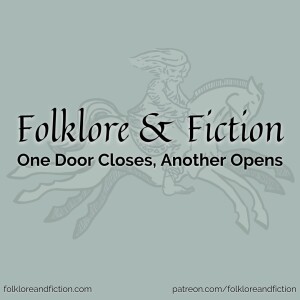
Sunday Dec 31, 2023
Episode 51: One Door Closes, Another Opens
Sunday Dec 31, 2023
Sunday Dec 31, 2023
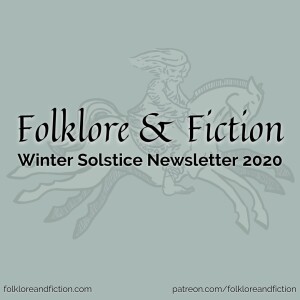
Sunday Dec 31, 2023
Episode 50: Winter Solstice Newsletter 2020
Sunday Dec 31, 2023
Sunday Dec 31, 2023
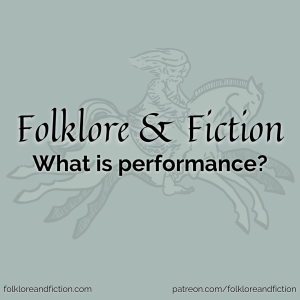
Sunday Dec 31, 2023
Episode 49: What is performance?
Sunday Dec 31, 2023
Sunday Dec 31, 2023
This episode of the Folklore & Fiction podcast was first published as a newsletter in November 2020. I'm recording it as a supplemental podcast now so that new listeners and subscribers have an opportunity to engage with the material. In it, I'm writing about performance with help from scholars Dan Ben-Amos, Roger D. Abrahams, Richard Bauman, and others, author and playwright William Shakespeare, and the McGahan Lees Irish Dance Academy. I'm also exploring possible uses of performance in storytelling. (Companion Dispatch: https://csmaccath.com/blog/what-performance)
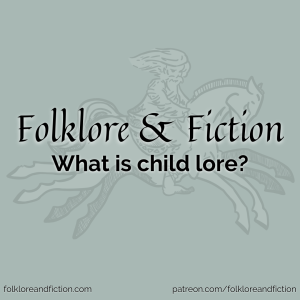
Sunday Dec 31, 2023
Episode 48: What is child lore?
Sunday Dec 31, 2023
Sunday Dec 31, 2023
This episode of the Folklore & Fiction podcast was first published as a newsletter in October 2020. I'm recording it as a supplemental podcast now so that new listeners and subscribers have an opportunity to engage with the material. In it, I'm writing about child lore with help from scholars Gary Alan Fine and others, author Philip Pullman, and The Choral Scholars of University College Dublin. I'm also exploring the use of child lore in storycraft and providing you with an exercise on the topic. (Companion Dispatch: https://csmaccath.com/blog/what-child-lore)
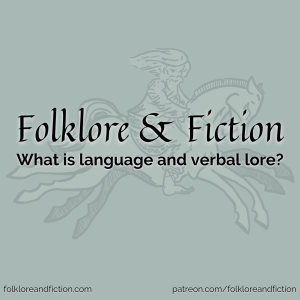
Sunday Dec 31, 2023
Episode 47: What is language and verbal lore?
Sunday Dec 31, 2023
Sunday Dec 31, 2023
This episode of the Folklore & Fiction podcast was first published as a newsletter in September 2020. I'm recording it as a supplemental podcast now so that new listeners and subscribers have an opportunity to engage with the material. In it, I'm writing about language and verbal lore with help from scholars J.L. Austin and Richard Bauman, author Frank Herbert, Swedish performers Emma Åslund and Åsa Larsson, and others. I'm also exploring the use of language and verbal lore in storycraft and providing you with an exercise on the topic. Settle in, friends! I squeezed a discussion of conspiracy theories into my newsletter schedule last month, so this is nearly a double edition. (Companion Dispatch: https://csmaccath.com/blog/what-language-and-verbal-lore)
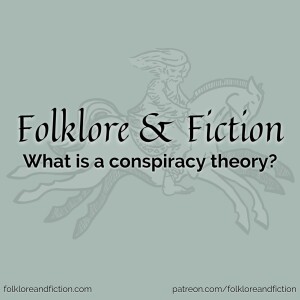
Sunday Dec 31, 2023
Episode 46: What is a conspiracy theory?
Sunday Dec 31, 2023
Sunday Dec 31, 2023
This edition is a departure from my promised two-part discussion of language and verbal lore, which will be condensed and presented in a single edition next month. Instead, I'm answering the call of folklore scholar Phillips Stevens Jr., who argues that folklorists are uniquely qualified to address harmful collective narratives and because of this, they have "a professional and moral responsibility to share their knowledge." I'm also following the lead of Timothy Tangherlini and his fellow scholars, who write that "people are making real-world, and at times violent or dangerous, decisions based on informal stories that circulate on and across their social networks, and that conspiracy theories are a significant part of that storytelling." With these arguments in mind, I'll endeavour to provide you with an accessible introduction to narrative scholarship on the topic of conspiracy theories and summarize my discussion with a list of questions you can use to evaluate the trustworthiness of narratives you encounter online and elsewhere. (Companion Dispatch: https://csmaccath.com/blog/what-conspiracy-theory)
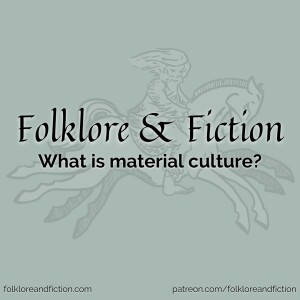
Sunday Dec 31, 2023
Episode 45: What is material culture?
Sunday Dec 31, 2023
Sunday Dec 31, 2023
This episode of the Folklore & Fiction podcast was first published as a newsletter in July 2020. I'm recording it as a supplemental podcast now so that new listeners and subscribers have an opportunity to engage with the material. In it, I'm writing about material culture with help from the Library of Congress American Folklife Center, scholars Judith Farquhar and Simon Bronner, The Joy of Vegan Baking, and the 2005 science fiction film Serenity. I'm also discussing the use of material culture in storycraft and providing you with an exercise on the topic. (Companion Dispatch: https://csmaccath.com/blog/what-material-culture)
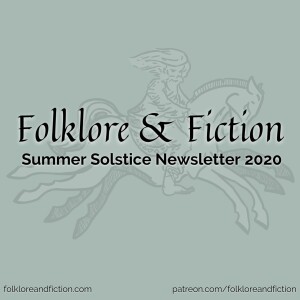
Sunday Dec 31, 2023
Episode 44: Summer Solstice Newsletter 2020
Sunday Dec 31, 2023
Sunday Dec 31, 2023
This episode of the Folklore & Fiction podcast was first published as a newsletter in June 2020. I'm recording it as a supplemental podcast now so that new listeners and subscribers have an opportunity to engage with the material. At the summer and winter solstices, I mimic the sun and pause to reflect on my own creative work. In this edition, I'm discussing representation issues in fiction with a passage from my short story "D is for Duel/One Who Dies as a God Dies," which was published in the D is for Dinosaur anthology. (Companion Dispatch: https://csmaccath.com/blog/summer-solstice-newsletter-2020)

You're a storyteller who loves folklore and wants to use it more effectively in the writing craft. I can help!
Who I Am
Greetings! I'm Dr. Ceallaigh S. MacCath-Moran. I hold B.A. in Celtic Studies from the University of Toronto, an M.A. in English and Creative Writing from the University of Maine, and a PhD in Folklore from Memorial University of Newfoundland and Labrador. I'm also an author, poet, and musician under the names Ceallaigh S. MacCath-Moran / C.S. MacCath, and I bring over twenty years of publishing and teaching experience to the Folklore & Fiction project.
What the Folklore & Fiction Project Is
The Folklore & Fiction dispatches and podcasts synthesize these passions with a focus on folklore scholarship aimed at storytellers. Here you can learn what folklore is and learn to use it in the writing craft from the first project ever developed by a professional folklorist for storytellers like you. The podcast is presently on hiatus, but all five seasons are still available free of charge when you sign up for an account here on the Folklore & Fiction website. They've been recommended by the American Folklore Society as a trusted source of folkloristic scholarship, they've been the topic of peer-reviewed ethnographic research, and they've been adopted as an aid to creative writing in several college and university classrooms.
Where the Folklore & Fiction Project is Going
I'm presently writing a book titled The Storyteller's Guide to Folklore, which explains folk narrative, folk belief, and folk life in approachable terms. Writing prompts and exercises take this a step further by encouraging storytellers to combine their newly acquired knowledge with characterization, conflict, dialogue, pacing, plot, world-building, and other story elements. You can follow my progress on this project and others the same way you gain access to the dispatch and podcast archives, by signing up for an account here and confirming your subscription to the Folkbyte newsletter.
Dr. MacCath-Moran is represented by Kelly Thomas at Serendipity Literary Agency. To inquire about her books, please write to info@serendipitylit.com.

